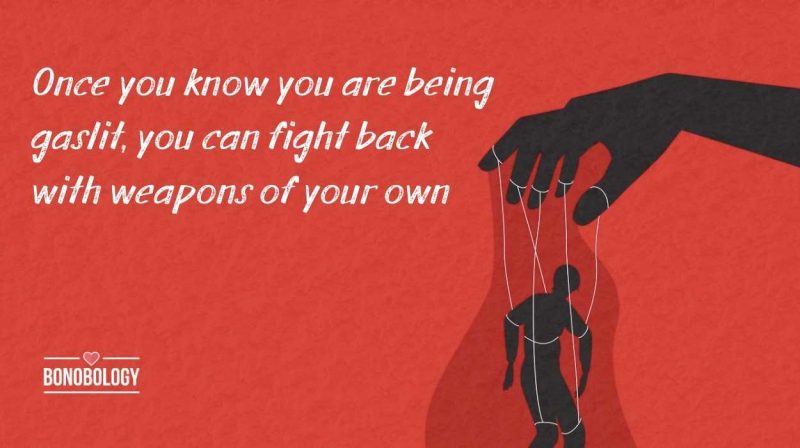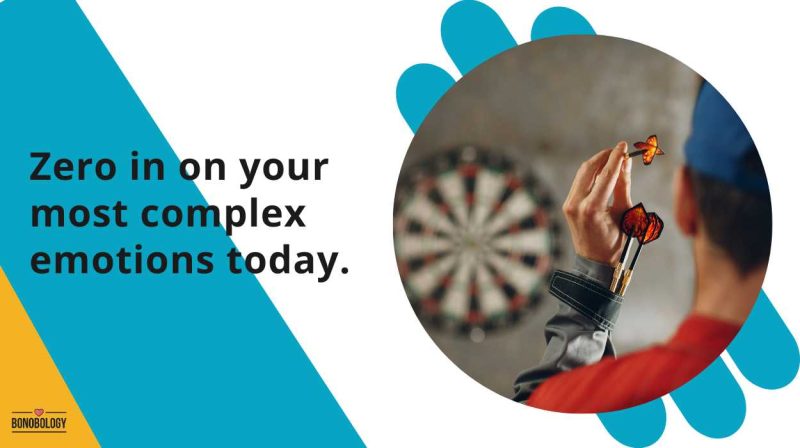Alcoholism and alcoholic tendencies in individuals regardless of age and gender is a menace in modern society. A proper medical rehabilitation program is necessary in order for alcoholics to undergo complete recovery and rehabilitation successfully.
Like any other drug or intoxicant, alcoholics are dependent on alcohol to such an extent that they cannot imagine their life without it. This severe dependency clearly has a hugely detrimental impact on their professional, social as well as personal lives. The ones who suffer the most are their parents and spouses, next comes their children, who have to grow up seeing an alcoholic parent. More often than not alcoholism becomes a way of life for them. Living with an alcoholic is a constant source of stress.
In this interview, psychotherapist Gopa Khan (Masters in Counseling Psychology, M.Ed), who specializes in marriage & family counseling) tells us what it is like to love and care for an alcoholic and what steps should be taken to better the life of an alcoholic and his family.
What Is Alcohol Use Disorder?
Table of Contents
Alcohol use disorder or AUD is usually referred to as alcoholism. It involves the pattern use of alcohol over time till it pretty much becomes the center of your existence. As months and years go by, someone who is facing alcohol use disorder will find it more and more difficult to control or stop their drinking. So, living with an alcoholic is not easy to say the least. People who abuse alcohol tend to sink into a cycle that is terribly hard to break out of.
In fact, it can get so bad that the person keeps thinking about the next drink when they are not drinking. Their entire existence ends up becoming about when they will be drinking again. If they try to lessen their alcohol intake or even quit drinking entirely, they will start facing severe withdrawal symptoms, including, but not limited to tremendous physical discomfort, depression, anxiety, irritability, mood swings, aggressiveness and so on and so forth.
This obviously does not mean that all kinds of drinking constitutes as alcoholism. A drink here and there, at a social event, with friends, and even a peg or two a few times a week is fine as long as it does not turn into binge drinking and create a dependency that becomes hard to escape in the long run and starts affecting your personal relationships and professional performance.
If your partner cannot stop drinking even when it is causing serious problems to their health and friction with the family, your partner may just have become a victim of alcoholism or alcohol use disorder.
What is it like to be the primary caregiver of an alcoholic?
“Their life is totally hell, to say the least. We have a terminology called “co-dependency” — a sense that their life revolves around that person. Sometimes a family member also acts as an enabler”, says Gopa Khan.
Basically, a person who spends a lot of time with the alcoholic becomes the first and foremost to be in direct contact and communication with them. They start feeling a lot of guilt, remorse and they may also go through a phase of denial.
There are constant arguments and it becomes somewhat like a parent-child relationship. I used to have a client whose husband was a hardcore alcoholic. She used to follow him around and pick him up from bars at 2 am. A lot of my clients also have domestic violence issues; mostly it is the husband who gets drunk and beats up the wife. You will often read in the newspaper that someone was stabbed because their spouse came in drunk and they were fighting.
How To Deal With An Alcoholic?
As anyone living with an alcoholic will tell you, an alcoholic has low inhibitions. So, if he is already depressed, it’s more likely for him to hurt his spouse. I have had clients come up to me and say, “He would have never hurt me in his senses”, then again, he did so only because he was under the influence of alcohol.
One of the things I insist on when I work with the family members of an alcoholic or someone clinically dependent on alcohol is that recovery will happen, but there should not be a social stigma associated with it. This is one of the most important things to remember while dealing with an alcoholic.
I also tell the family, “Don’t nag, don’t lecture and don’t preach.”
What happens with the alcoholic when someone is nagging them is that they will shut the family off. So they start making promises they don’t keep. Probably they will say they won’t drink again and then 2 hours later, they will start drinking again.
Also, try not to control their behavior, because stopping consumption of alcohol and drugs is not easy. It’s only when the alcoholic chooses to give up on his dependency, the treatment can be successful. Even when a person undergoes treatment, he may experience relapse and become a recovering alcoholic. Relapses are indeed very common. We still consider him to be a recovering alcoholic.
Related Reading: I Want To Divorce My Alcoholic, Womanising Husband
What Is The Effect Of Alcoholism On Intimate Relationships And Marriages?
In most cases of alcoholism, what happens is that the marriage ends in divorce or the wife leaves the house after getting tired of dealing with an alcoholic. Essentially, for both of them, it is a phase of financial hardship, and it becomes increasingly difficult for the spouse to run the house.
Secondly, because the other person is in denial, they refuse to get any sort of help or treatment for their condition. Then there is domestic violence and mostly the victim is the woman.
I’ve seen marriages where the parents of the child separate. Mostly it is up to the woman to decide if she wants to continue with the marriage. If it’s a marriage of 20 years it might last if the wife really wants to continue. Then again, there was a wife who came to me, saying she was done with her alcoholic husband after 16 years of marriage.
I had a client whose father-in-law and husband were both businessmen and the husband became increasingly dependent on alcohol, to such an extent that their entire business suffered terribly. Then there was a lot of domestic violence involved as well.
The partner of an alcoholic is so preoccupied with his or her spouse that they end up neglecting themselves. They are in a constantly remorseful state and they suffer from anxiety, fear and pain. Their world basically revolves around that one single person.
Children often feel that they have to take care of their elders and they become co-dependent while trying to cope with an alcoholic. These are the direct effects of living with an alcoholic. I had a young girl who came to me who used to just sit in front of her father and stare at him while he drank. She used to see how much he could drink. So, it is often the case of irrational behavior.

How does an alcoholic feel about his addiction?
When trying to cope with an alcoholic, it is important to remember that they do feel a lot of shame, a lot of pain and they feel the need to numb themselves and alcohol is like an escape to them so that they do not see the situation of others around them.
At the same time, they are aware that they need to get off alcohol, so they need to get themselves into some Alcoholics Anonymous program and go through subsequent therapy sessions, but most of them are stuck in denial.
The first thing they need to do is breakthrough that phase or cycle of denial and see the reality for what it is.
Why does relapse happen?
There are a lot of reasons why an alcoholic person relapses in the first place. Sometimes they give up on alcohol and get themselves back on track. But taking care of oneself may not happen in the long run and chances are high that they start neglecting themselves again and fall back into the same cycle of addiction yet again, back to the same self-destructive mode.
One of the patterns I see in my clients is that very often they start defending themselves or their choices. They start lying about taking alcohol and often talk of giving up alcohol. This might indicate they are on their way to relapse. Since recovery is not an easy path and takes time, they become impatient.
People with a lot of anger issues are prone to taking alcohol as well, as an excuse.
People who suffer from depression also start taking alcohol. In some cases of depression, I have seen that the person is a recovering alcoholic, but ends up getting addicted to antidepressants or painkillers.
Related Reading: Turning Point: I Dealt With My Husband’s Drug Addiction By Loving Him Unconditionally
They already have a dependent personality but they get addicted to something else other than alcohol.
What eventually happens in a relationship where an alcoholic is involved?
In most cases, if the woman in the relationship is financially independent and/or has a supportive family, they do try to make the marriage or relationship work. They end up sticking around with their partners for a few years to the point they are emotionally exhausted and can’t take it anymore.
I have seen marriages of 15, 16 years fall apart. Then again, there are women who stick by their spouses and children, and sometimes it can be seen that the father is really good to his wife and kids, but a whole new personality comes out when he is drinking.

While living with an alcoholic how can one get him out of his addiction?
The first thing a high-functioning alcoholic should do is get himself out of the phase of denial. I have had clients come to me with the full-fledged claim that they don’t have a problem, while their family members are saying, they DO HAVE a problem.
So, it’s important for high-functioning alcoholics to understand and accept their dependency on alcohol in the first place. Secondly, I would strongly recommend them to give up on this dependency. It’s just like giving up smoking.
Everyone is working, they have to attend meetings, social gatherings etc. and they are still at a stage where they can save themselves by taking a step back. If they don’t, they have a high risk of losing their jobs.
Also their family, their boss, their friends and overall support system must intervene when they see a problem and not ignore it or keep quiet about it just because he is performing well at work.
For example, I had a client who was a brilliant researcher and often he used to get drunk leading to his colleagues driving him home. Eventually, 3-4 of the colleagues intervened in the matter and 2 of them had a confrontation with the client about the matter. It’s impossible to keep functioning within tight deadlines if you are an alcoholic. It will eventually start showing in the workplace.
One more thing I insist that my clients do for themselves is self-care. They must do meditation and yoga, and keep themselves busy with work as well, because self-care is what helps them to de-stress. They could also try out joining self-help groups. That’s something that really helps.
Not many people realize that living with an alcoholic is exhausting and stressful. Instead of dealing with the stress regularly out of love and sympathy, it is better to aim for rehabilitation for the greater good of both the victim and his family.
Your contribution does not constitute a charitable donation. It will allow Bonobology to continue bringing you new and up-to-date information in our pursuit of helping anyone in the world to learn how to do anything.























Trying to keep your partner “happy” when they are angry isn’t a good strategy. You want them to be well, not temporarily subdued. Unconditional love is a positive thing, but if you cater to their wants by purchasing alcohol or ignoring the issue at hand, you aren’t helping them get any better.
Families often experience repercussions from a loved one’s alcohol use disorder. One family member’s heavy alcohol use can destroy the fundamentals of the family, sparking feelings of shame, guilt, anger, fear, grief and loneliness.
Alcohol addiction can consume people, causing them to lose sight of their familial responsibilities. Spouses often pick up the slack and endure the psychological effects, including anxiety and depression, of living with someone with an alcohol addiction.
People who struggle with alcohol use disorder may try to hide their condition, or they may believe that the negative effects of their problem only hurt them. However, addiction to alcohol often changes behaviors, puts people at risk of financial and legal problems, and leads to memory loss or cognitive difficulty – all of which can negatively impact people who love alcoholics, such as parents, siblings, friends, children, and spouses.
Are you wondering how you can cope with a drunk mother during the holidays, or how you can help her? Have friends told you that you are an enabler for your spouse? Do you find yourself suffering the consequences of a loved one’s alcohol problem? It can be hard to hear that you need to change yourself when a loved one is living with alcoholism. After all, it’s their problem, isn’t it? Unfortunately, you can only change yourself, and the only way you can interrupt and change the current course of your interactions with people with substance abuse disorders is to change your reactions.